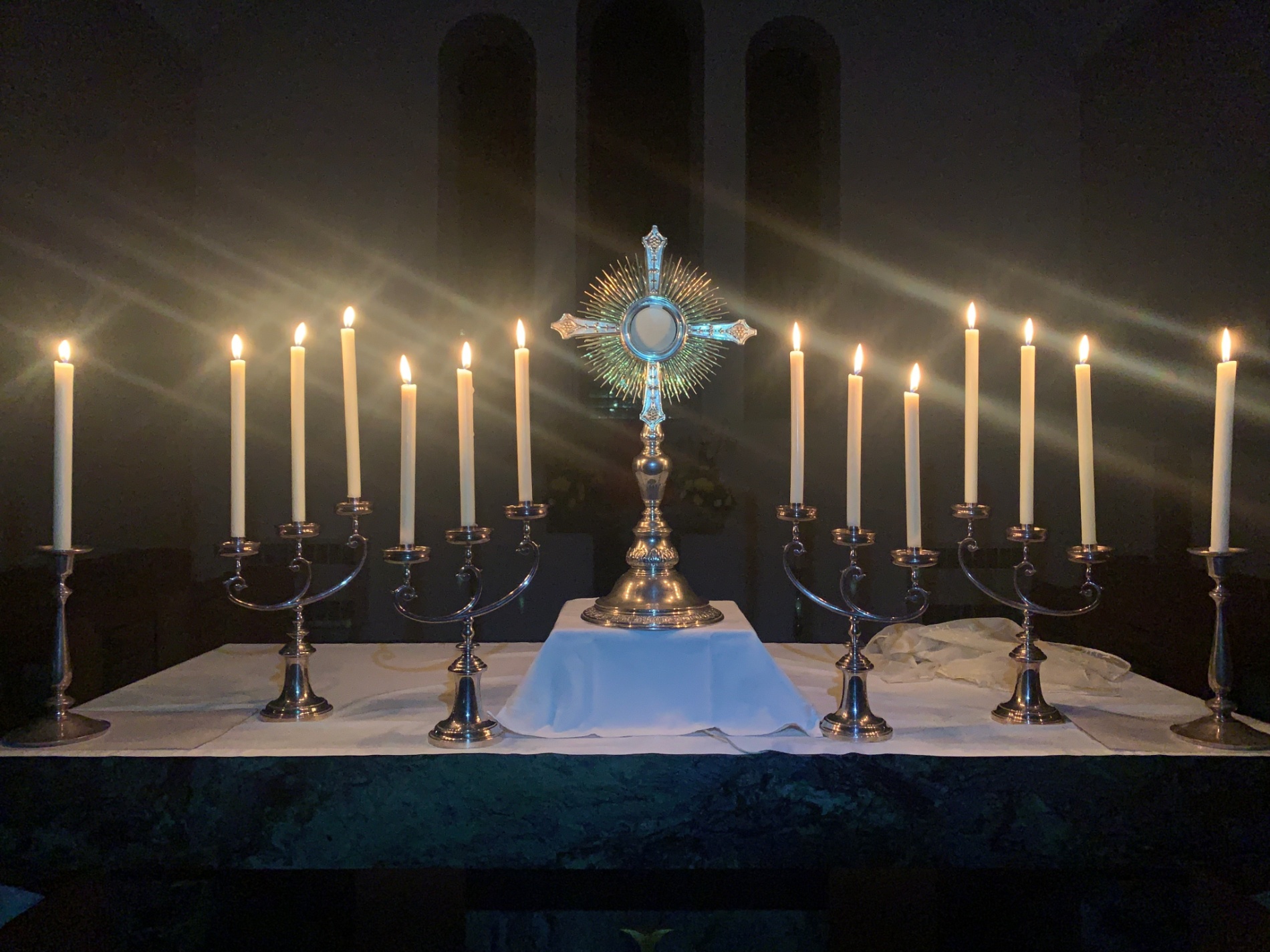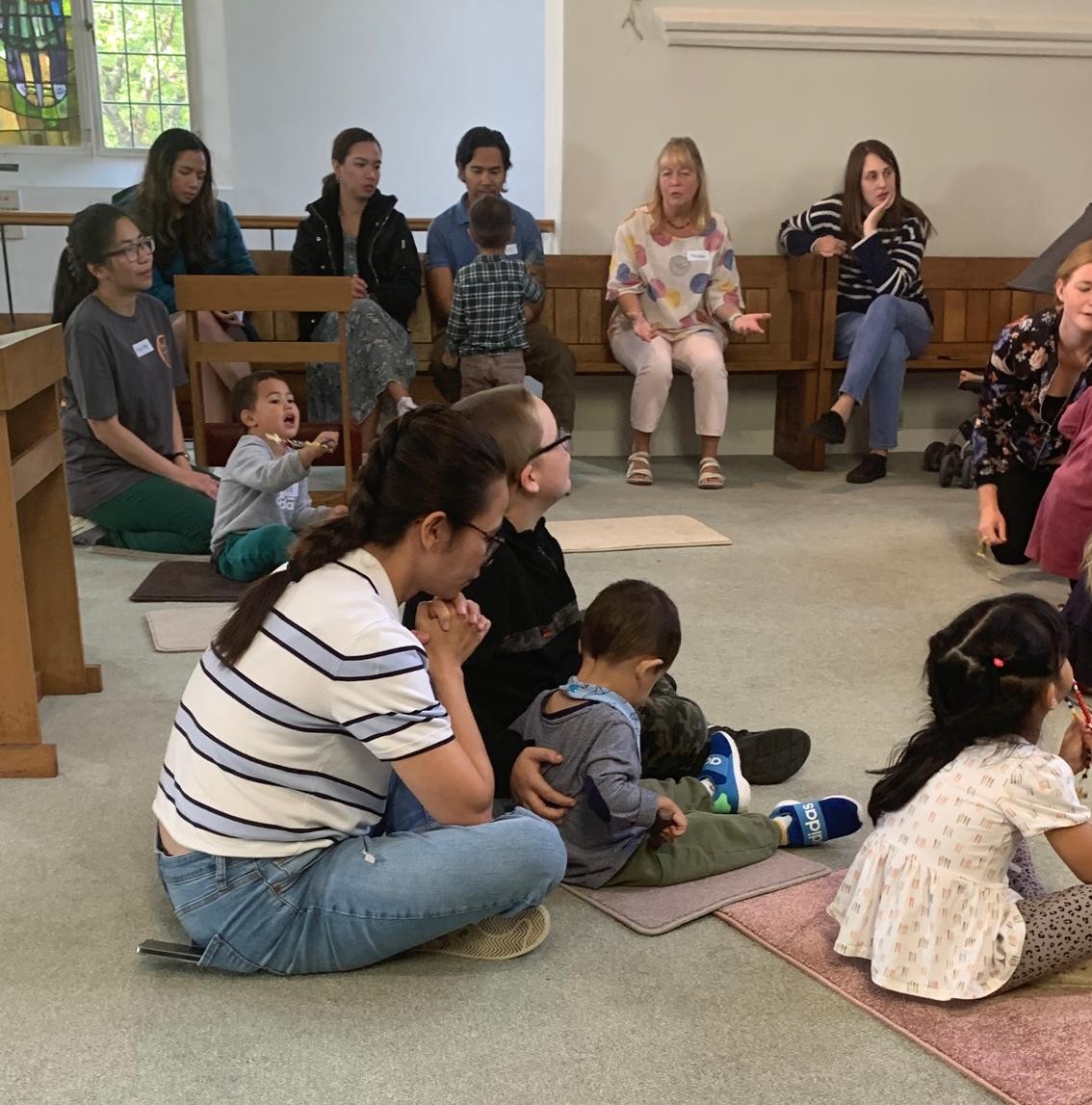Timetable of prayer
| Day | Time | Event | Location |
|---|---|---|---|
| Monday | 8.30am | Morning Prayer | Seaford |
| 6pm | Adoration | Peacehaven | |
| 6.30pm | Evening Prayer | Seaford | |
| Tuesday | 8.30am | Morning Prayer | Seaford |
| 9am | Morning Prayer | Peacehaven | |
| 10am | Adoration | Seaford | |
| 6pm | Evening Prayer | Peacehaven | |
| 6.30pm | Evening Prayer | Seaford | |
| Wednesday | 8.30am | Morning Prayer | Seaford |
| 9.30am | Rosary | Peacehaven | |
| 6pm | Evening Prayer | Peacehaven | |
| 6.30pm | Evening Prayer | Seaford | |
| Thursday | 8.30am | Morning Prayer | Seaford |
| 9.30am | Rosary | Seaford | |
| 6pm | Adoration | Peacehaven | |
| 6.30pm | Evening Prayer | Seaford | |
| Friday | 8.30am | Morning Prayer | Seaford |
| 9.30am | Rosary | Peacehaven | |
| 10am | Adoration | Peacehaven | |
| 6.30pm | Evening Prayer | Seaford | |
| Saturday | 9am | Morning Prayer | Seaford |
| 9.15am | Rosary | Seaford | |
| Sunday | 9am | Morning Prayer | Seaford |
| 6pm | Benediction | Seaford |
Explore types of prayer
Private prayer
Praying alone
Private prayer creates intimacy between us and God, giving us an opportunity to express every feeing – every fear, every longing, every desire to the One who can help us. Sharing our innermost thoughts is a relief, God takes our burdens and concerns, our hopes and fear upon himself. In private prayer we sense His love for us and we can leave our cares with Him. ‘Casting all your anxiety on Him, because He cares for you’ (1Peter 5:7) Private prayer stops us from worrying about what we say in front of other and prevents us being hypocrites, giving us a chance to focus on God rather than other listeners. Jesus, himself, sets us the example of private prayer, He often went off by Himself to pray. He loved people and loved spending time with them – talking, healing, teaching – it must have been physically and emotionally exhausting. How did Jesus refresh Himself? He made time alone with his Father a priority, he went off by himself and prayed. ‘In my trouble I cried to the Lord, and He answered me.’ (Psalm 120:1)
Divine Office
Morning and evening prayer, benediction, adoration
A beautiful and ancient tradition in the Catholic Church that is not reserved for priests and religious but can be prayed by the lay faithful. As far back as The Acts of the Apostles the Christian community followed the Jewish tradition of gathering for prayer at appointed times. St Paul reminded early Christians in his letters to ‘pray without ceasing’ (1Thess. 5:17) as well as Jesus telling his disciples about the ‘necessity for them to pray always without becoming weary’ (Luke 18:1) Christians took these commands very seriously and by the 200s they were gathering for morning and evening prayer; daily prayer at regular intervals was something available to all Christians. As the early Church moved into the Middle Ages, however, the practice fragmented into the ‘monastic office’, the preserve of monasteries, and the ‘cathedral office’, celebrated in parish churches. Over time it came to be seen as something belonging to the clergy and therefore remote from lay people. It was not until 1963 that the Second Vatican Council took steps to put the Hours back into the hands of the whole church. The Second Vatican Council highly encouraged the laity to ‘recite the divine office, either with the priests, or among themselves, or even individually’ (Sacrosanctum Concilium, 100), as … ‘The purpose of the Office is to sanctify the day.’ As we implement the Bishop’s diocesan plan and the reality of no parish priest sinks in across the diocese, praying Morning and Evening prayer together in our places of worship becomes even more important as coming together in prayer helps us to grow as a prayerful community.
Devotions
Incorporating prayer seamlessly into our daily lives
Children can easily learn devotional prayers and practices, because of their frequent association with physical actions or holy objects as well as their regular (daily, weekly or seasonal) repetition.
Devotional prayer includes the Rosary / Stations of the Cross / Divine Mercy / Stations of the Resurrection.
We make time for so many things in our busy lives, let’s give ourselves time to pray, time to feed our spirit and soul, to be inspired, strengthened, and renewed so that the challenges of life are not too heavy.
“Love to pray. Prayer enlarges the heart until it is capable of containing God’s gift of Himself.” – Mother Teresa

